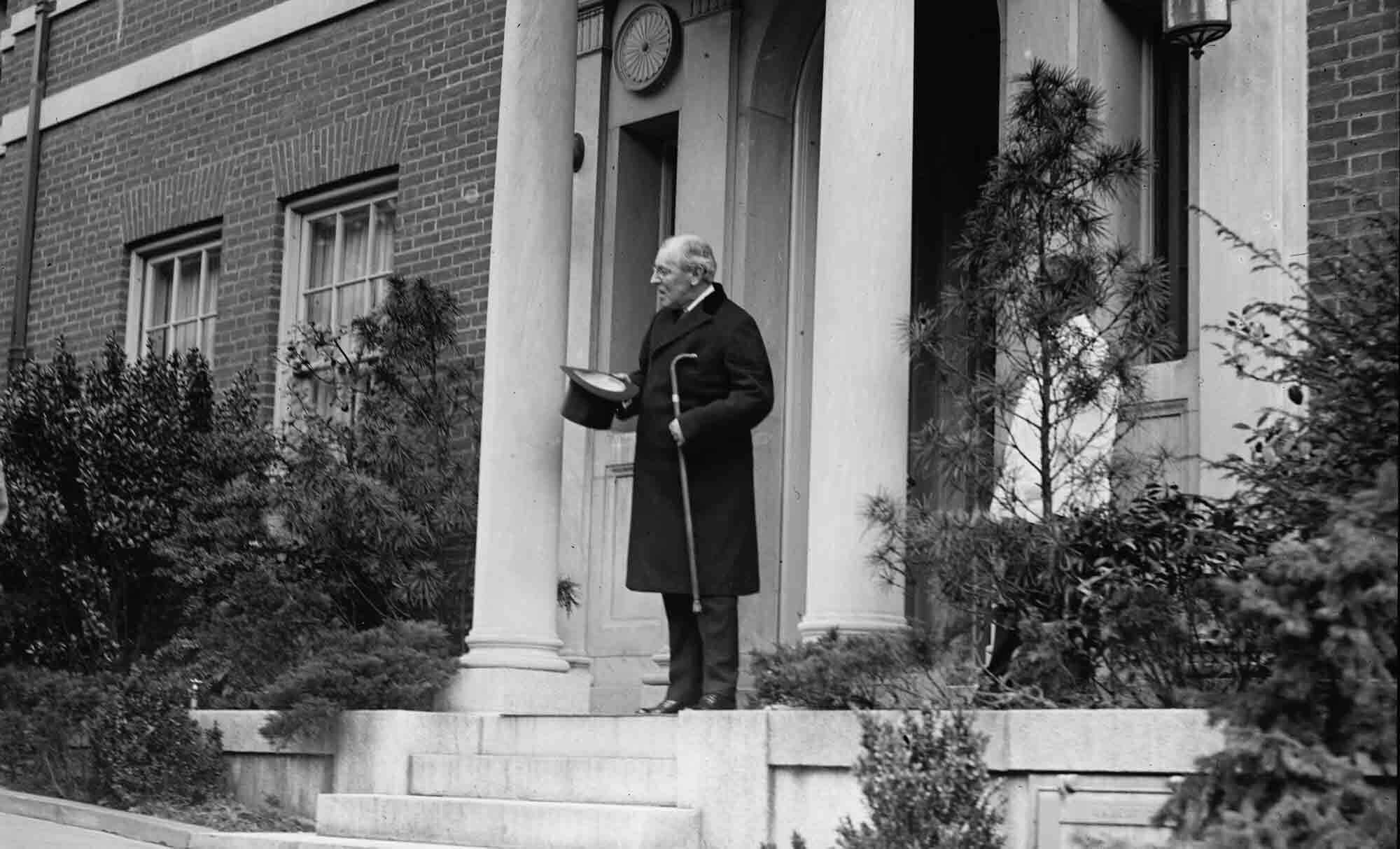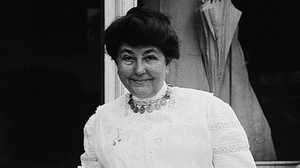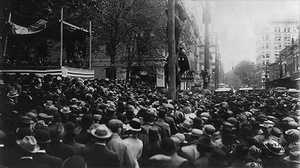Wilson's Legacy

On March 3, 1921, Woodrow Wilson relinquished the White House to conservative Warren Harding. Wilson accompanied the president-elect to the Capitol. Then, as the sounds of "Hail to the Chief" drifted faintly from the inaugural ceremony, he entered his Pierce Arrow automobile and drove down Pennsylvania Avenue towards his new, and last home. As he passed the White House, he looked away.
Woodrow Wilson would live for three years in a house on S Street. A steady trickle of well-wishers came through, but Woodrow Wilson remained a haunted man, wavering between bitterness and stoical resignation to fate.
Before leaving office, he had won the Nobel Peace prize. But having failed to achieve his dream of bringing the League of Nations into existence with America at its head, Nobel recognition gave Wilson little solace.
Whether he realized it or not, Woodrow Wilson left behind a profound legacy, one which still generates lively debate to this day.
Ira Katznelson, Historian
Wilson matters as the first modern president. Wilson matters as the person who led the United States into global geopolitics. Wilson matters as someone who followed a progressive political agenda and who established a model for subsequent possibilities, some of which had to wait a long time to come back.
David Levering Lewis, Historian
We've had two very flawed presidents, great men with great ideas, who have had bad press. One was Thomas Jefferson. The other Woodrow Wilson. In Wilson's case, the racial legacy he left is really quite troubling and sad. The larger legacy is one of idealism disconnected, it seems to me, from a practical agenda.
David M. Kennedy, Historian
Woodrow Wilson matters because he is one of the shapers of the modern presidency. He's one of the people early in this century who understands number one, that the president as he put it himself is free to be as big a man as he can be. That he's not merely the servant of the legislature. He understands the power of the president to deal directly with the people.
John M. Mulder, Historian
I see Wilson's life as tragic in the sense that he obviously lost on the League. Ö He's not tragic however in the larger scope of American history because what he did was to help us understand the complexity of power both domestically and internationally in ways that we are still working with. The Wilsonian concepts of how political power should be used on behalf of social justice are still defining assumptions for twentieth century American political life.
John Morton Blum, Historian
If one wants to talk about Wilsonís legacy, I see it at least more in terms of a process than I do in terms of a product. It isnít the League of Nations but the importance of thinking through a way to the control the potential anarchy and the relations of states. What Wilson was capable of was as a president, to involve himself in great affairs and to try to find ways in which to work out the problems created by those great affairs, he was never evasive in that way.
Jay Winter, Historian
Wilsonís ideas were victorious even if his policies werenít. He left his stamp upon the way in which American foreign policy has been formulated throughout the 20th Century and the paradox is that a man whose vision was repudiated by the political leadership of his time managed to achieve a way of framing the language of American foreign policy throughout the 80 years since his death.
Walter LaFeber, Historian
It seems to me that Wilson failed because he tried to apply American principles to the world; and the world did not want the American principles. He took a kind of an American liberalism and essentially tried to create a form of world institutions: self-determination, open trade, the things that Americans had evolved over three-hundred years and incidentally in the process of which we had killed six hundred thousand of each other in the Civil War because it hadnít worked too well. The Europeans knew this. The Europeans knew that Wilsonís principles had problems.
Ira Katznelson, Historian
Wilson's also important as the president who presided over a number of major constitutional changes. The direct election of United States senators, prohibition, and womenís suffrage. The period of his presidency was a period therefore of extraordinary new assertion of governmental capacity in the United States, as well as presidential ambition.
Victoria Bissell Brown, Historian
His greatest contradiction from my point of view, is that his rhetoric was pro-democratic, but his behavior was often very paternalistic, very controlling, very unsympathetic with and having very little patience for the messiness of democracy, the noise of democracy. He saw democracy as a tool for creating harmony, civilized mediation. He wasnít always comfortable with he fact that democracy is a noisy and messy business.







